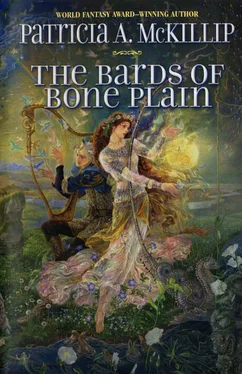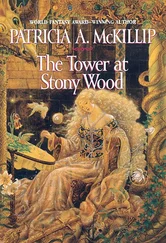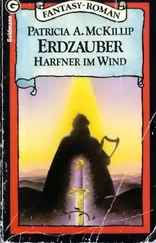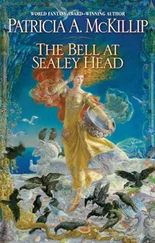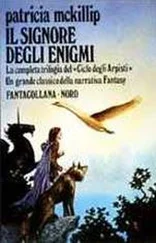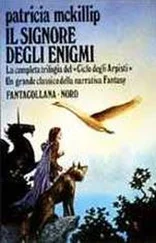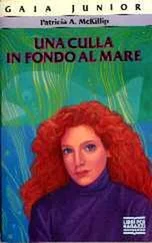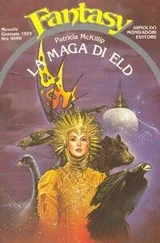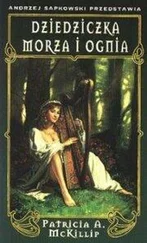Or perhaps the face belonged to Declan, who died still searching for a bard with equal gifts in magic and music to send to King Oroh.
Perhaps Nairn himself left all such signals throughout history, in the various guises he might have taken—bookmaker, baker, warrior, lover, tavern keeper—like a cry across the timeless twilight in which he lived, where all that he knew, anything he loved, he must watch flow endlessly away from him toward night.
In the Circle of Days, we glimpse the path of the Wanderer, still unforgiven by the intractable powers of the land he roamed. And we begin to wonder, in pity and fear: unforgiven for what act that set him on his lonely trek through history?
What could possibly be that unforgivable?
What exactly happened in that tower?
Beyond the world he knew, he wandered,
The Unforgiven,
So far that he heard each word, each sound
Torn from its deep roots in history
Ratchet through the exacting grind of time,
Wear down to a new, fine gloss.
That long he wandered:
Through his dying and reviving language.
FROM “SONG FOR THE UNFORGIVEN” BY E. M. NIGHT
On his first journey beyond Stirl Plain, where he had lived, in one shape or another, for over three hundred years, Nairn left his mark all over Belden.
As he had in his youth, he wandered, not in search of music this time, but in search of the Circle of Days. Within that source of power, he might revive his own shadowy, flickering powers that permitted him to mask his age and turn into a stone when he craved forgetfulness. But little else: he could not tune his harp to magic. He couldn’t tune it to the simplest scale, either; he wondered if, rekindling his magic might fine-tune his ears again as well.
To that end, he sought out the burgeoning cities of Belden, put out a call to anyone who recognized it. He had all the time he needed to learn new professions, and many places in which to practice them. His seal, his sign, hung over different shop doors of all kinds; it marked jewelry, bread, weapons, books, anything that might attract the cognizant eye, the kindred mind. In each new place, he founded his own Circle of Days, following Declan’s methods. Finding inquisitive minds, enthusiastic disciples with a penchant for mystery, ceremonial robes, and identifying disks wearing a convincing patina of age, was easy. Finding anybody with actual abilities in the prosaic kingdom seemed hopeless. It was as though the magic had died when the ancient words were relegated to the past, carved on stone that no one could pronounce anymore, even if they could, out of scholarly curiosity or dreams of sorcery, learn to decipher them.
He gave up finally, closed his last shop, bade farewell to friends, acolytes, and mistresses, and took the tide out of the sprawling city that the tiny village of Caerau had become, down the Stirl to the sea. The ship was bound for the land where King Oroh had been born.
The land was either lost in myth or prudently shrouded with magic against strangers. Maps were imprecise, sailors’ information ambiguous; violent winds rose and blew them off course just when they finally seemed close. Nairn, recognizing the forces that hid the magic from him, wondered at such abilities even as the ship’s mainmast snapped with a sound like a harp string breaking. He wondered with relief if he was finally going to die.
He woke on the tide line with his mouth full of sand and lifted his face groggily to the sight of birds with plumage of such rich hues that even he, with his jeweler’s eye, could not precisely name the colors. They whistled cheerfully as they flew among great trees with massive trunks of dark, smooth wood streaked with tones of amber and ivory. He stared, then let his face fall back onto the sand, wearily recognizing the next turn in the tedious path of his life.
He took samples of the wood and the plumes back to Belden with him on the next passing ship, and, through the decades, despite his boredom and unending frustration, he became a staggeringly wealthy merchant. Later, he became a pirate and plundered his own ships; it only made him richer. He became a recluse for a while, a legend in Caerau, amassing books and allowing only traders with the most exotic rarities through his doorway. Then he closed up his mansion beside the Stirl and became a tavern keeper. Then a chef in a restaurant frequented by the nobles of the king’s court. A thief, until he realized one day that most of what he stole he had owned at one time or another. A librarian. A museum curator. A traveler again, this time a professional forager into the debris and treasures of ancient history in other lands.
That made him wealthier still.
He had long lost track, by then, of how many wives and mistresses he had loved and mourned, how many children he had left to multiply all over Belden, how many different ways he had tried to die. He had forgotten the crimes he had committed that doomed him to hang or burn or lose his head: being a pirate, probably, or inciting treason against the Peverell kings, or trying to blow himself up in a public place, some such. Rain had doused the fire; the rope around his neck had broken, leaving him sprawled on the ground with a sorely strained knee, and the distinct plink, in his ears, of a harp string snapping. Even the executioner’s ax had refused to touch him: its swooping blade flew off the handle and nearly decapitated an innocent bystander. In each case, according to murky tradition, the intent of the law was satisfied, and Nairn was freed on the grounds that he couldn’t be killed twice for the same crime.
He gave up trying to die. Reinventing himself yet again, he became a young student in the bardic school on the hill, which was now completely surrounded by Caerau. As the only heir of deceased parents, his great wealth kept him at the school despite the fact that he was without a doubt the worst student ever to ignore all hints that he should leave. He couldn’t distinguish one pitch from another; around him reeds split, harp strings broke, drums shrugged off any kind of rhythm. His voice, pleasant enough when he spoke, grew wavery, reedy, when he tried to sing. Great, gaping holes developed in whatever ballads or poetry he tried to memorize.
“You love music,” one of his masters told him bluntly. “It does not love you.”
“It’s as though you are bewitched,” another said as perceptively. “Or under a curse. Perhaps you’d be more successful in another course of study?”
But he persisted, failing pretty much everything, though not, his teachers saw, without a great deal of utterly wasted, very hard work. He chose, for his final research paper, the hoary mystery of the location of Bone Plain, and failed, despite all his research and the books and manuscripts he had amassed through the centuries, to solve that puzzle as well.
When the pretty, rich, and well-connected Sophy Waverley, dabbling in classes at the school to pass the time, took pity on him and married him, he felt extraordinarily grateful. She took him away from the school to live in the antique house her father had bought them, and encouraged his eccentricities so that she could pursue her own activities, which mostly involved good works done in congenial surroundings. She introduced him at court, where the young King Lucien encouraged him in his forays into Caerau’s past and marveled at his grasp of nearly anything that did not involve music.
He and Sophy had a son.
Nairn began to roam, then, at night through the quiet city streets, the corridors of stone standing so high above him they blocked the stars instead of speaking to them, as the ancient stones did. He sought out the places where past and present merged, where ancient songs lingered among the abandoned hulks of worn-out buildings. He craved the company of the moon, of old winds that swept through burned-out windows, doorways that had lost their doors and long forgotten where they led. In such places, the lost winds spoke an ancient tongue; the moon seemed to have wandered overhead from a distant time. With its pale light sliding over ruins, making shadows out of nothing, it seemed to search for a past it remembered. This dreaming moon could not see the complex, modern city, with its engine-driven ships and snorting steam trams. Nairn could speak to this moon, and often did, settled on a pile of rubble with a bottle in hand and another one beside him.
Читать дальше
